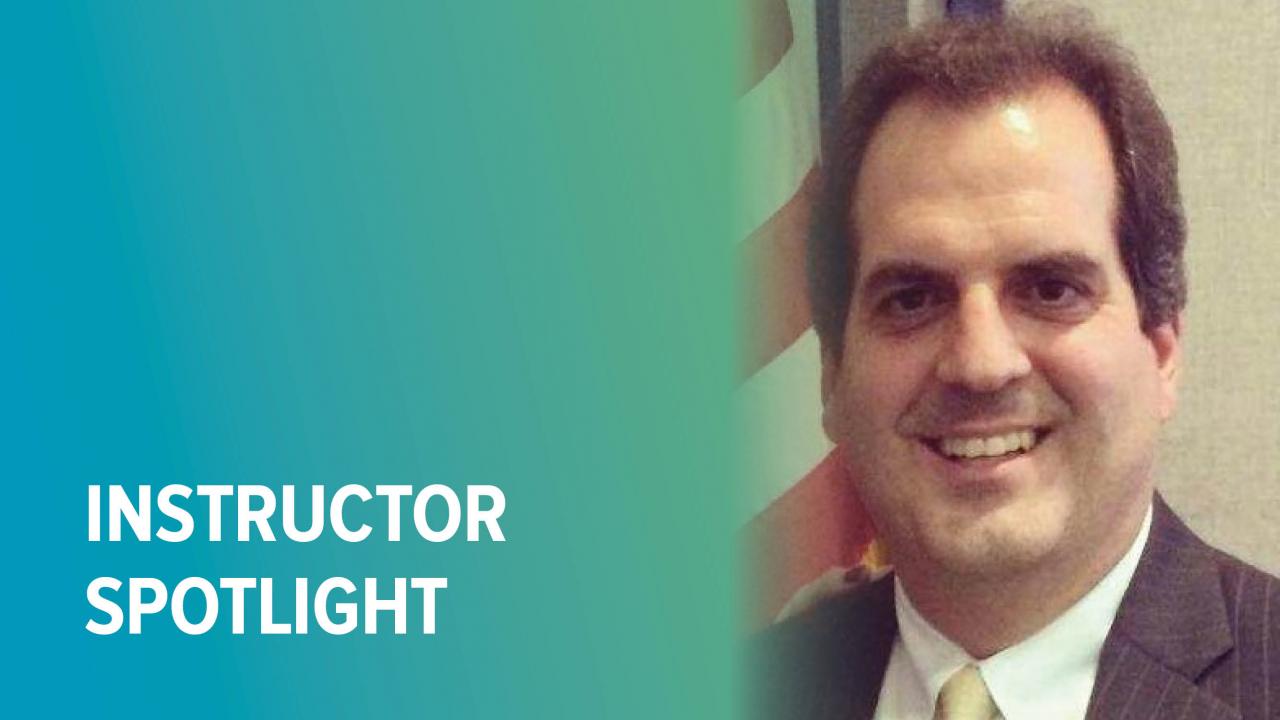
Instructor Spotlight: Michael J. Pocchia
A practicing attorney with more than 29 years of legal experience in both civil and criminal litigation, Michael J. Pocchia has been an instructor for the UC Davis Continuing and Professional Education Paralegal Studies Certificate Program for 20 years. He completed his undergraduate studies at John Hopkins University and the London School of Economics and Political Science and received his Juris Doctor Degree from Brooklyn Law School.
Why do you teach?
Teaching is my opportunity to give back to the profession. It’s fulfilling and, in many ways, fun. In the legal profession there is rarely a winner or loser. It is a profession of compromise, settlements and plea bargains. But as an instructor in a continuing and professional education program, you have students that choose to attend and they are highly motivated. Because they are making financial and time commitments, they want to succeed for themselves and, in many cases, for their families. It's satisfying to take students at the beginning of the program and work with them to become a paralegal that’s ready and capable of entering the legal profession.
How would a student describe your teaching style?
Teaching in an online self-study, self-paced course is very different from instructing in a classroom. Students will ask questions or submit assignments or exams late at night or on weekends, and they appreciate having feedback and results quickly before moving on to the next assignment. Therefore, I make every effort to respond within hours of being contacted, even if that means emailing or calling late into the evening or on weekends. I consider that part of my responsibility. If students are willing to make sacrifices to further their education, to create a better future for themselves and their families, then I think they deserve quick responses. Students constantly tell me how they appreciate that I truly care about their success and how I am able to take complex legal principles and explain them in simple, real-world examples they can relate to.
What do you want students to take away from your program?
I want students to begin the program by putting aside everything they think they know about law from watching television and start with a clean slate. I want them to fully apply themselves, learn and ask questions—to go beyond textbook reading and seek information. I want them to look at the class as more than just a grade, but as something that is preparing them for a profession. And I want them to be very competent and confident in that profession.
How will learning paralegal skills positively impact a student’s life or career?
The skills you learn in a paralegal program can impact your life in many ways. Students learn how to think analytically and to ask questions. They also learn not to take everything they hear as truth, but to follow up with research and make informed decisions.
What jobs or career advancement opportunities are available to those with paralegal training?
There are a tremendous number of opportunities for paralegals. While some do work on trial cases, there are many paralegals that don't go to court. Paralegal positions exist in real estate and intellectual property firms, as well as in corporations and government. Having a paralegal certificate and related training make you a marketable candidate for promotions in current jobs and can even be used as a stepping stone to law school. The possibilities are endless.
Join the Paralegal Industry
Acquire the knowledge you need to enter the paralegal profession through our acclaimed Paralegal Studies Certificate Program, offered online every quarter. Enroll today!
What are the necessary skills for someone considering a career (or career advancement) as a paralegal?
A successful paralegal is someone who can follow directions and work on assignments independently. A paralegal should be able to pay attention to details, read documents closely and be passionate about their work. The ability to think analytically also helps very much in this profession.
What’s trending in the legal field that students should be aware of?
What students need to understand is the law is constantly changing, being invented and always lags behind changes in life and technology. This creates new opportunities and jobs. Remember at the beginnings of the Internet and the explosion of social media, there were no clear laws for regulation. We see now how much they are needed. And there is always some new advancement on the horizon that will require new laws. There will always be new legal theories and areas of law to develop, and our students could be on the cutting edge of that.
